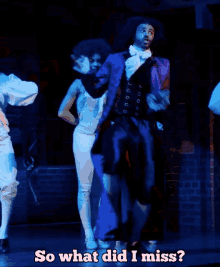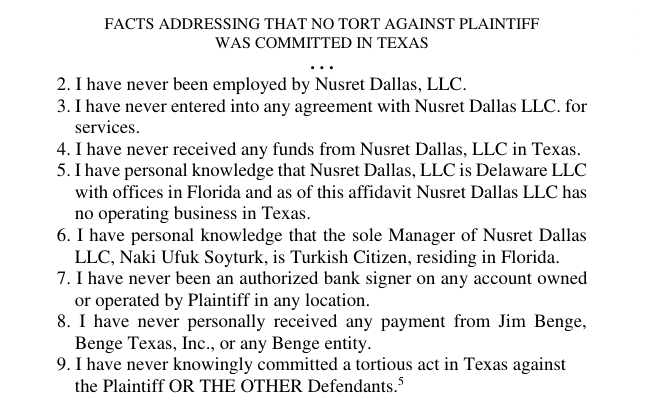 The Disaster Act “grants the Governor the authority to prohibit local governments from requiring the wearing of masks in response to a contagious disease.” The supreme court left for another day the outer limits of the Governor’s power under that Act. The Dallas mask case was decided in a separate cause number that referred back to the analysis in Abbott v. Harris County, No. 22-0124 (Tex. June 30, 2023).
The Disaster Act “grants the Governor the authority to prohibit local governments from requiring the wearing of masks in response to a contagious disease.” The supreme court left for another day the outer limits of the Governor’s power under that Act. The Dallas mask case was decided in a separate cause number that referred back to the analysis in Abbott v. Harris County, No. 22-0124 (Tex. June 30, 2023).
Monthly Archives: June 2023
Texas’s special-appearance process requires, as the second step, that the defendant bring forward evidence to negate the plaintiff’s averments about longarm jurisdiction.
The defendant’s affidavit in Nusret Dallas LLC v. Regan said the following;
The Fifth Court found that paragraphs 2-3 and 5-7 did not negate the plaintiff’s allegations. Paragraphs 4 and 8 addressed the general topic of the plaintiff’s allegations, but did not “squarely meet or negate” their substance. Paragraph 9 “is conclusory … and legally constitues no evidence.” No. 05-21-00739-CV (June 23, 2023) (mem. op.). The Court went on to review the merits of the plaintiff’s allegations and reversed the grant of the defendant’s special appearance.
Two New York lawyers filed a brief with “fake law” in it, having accepted at face value a “hallucination” by ChatGPT abouot several cases that did not in fact exist. The district court has now sanctioned them. The opinion is of broad general interest, given the great influence of generative AI in its few short months of widespread public availability. And it’s also of broad general interest in avoiding sanctions–the lawyers had at least one good chance, and maybe even two, of coming clean about their error, but instead “doubled down” with purported screenshots of the nonexistent cases.
The Emperor Justinian (right) ruled the Byzantine Empire, a society often criticized for its complex legal system. Justinian would likely feel at home with the Texas system of trial courts, which distinguishes among courts created by the state constitution and “statutory” courts created by the Legislature.
In Ditech Servicing, LLC v. Perez, No. 21-1109 (May 19, 2023), the Texas Supreme Court reviewed that system to conclude that a county-specific statute controlled over a general, statewide limitation on statutory-court jurisdiction, letting a Hidalgo County court at law hear a counterclaim allowing a foreclosure.
The comprehensive review of the statutes, and the relevant canons for their interpretation, is a useful general reference. It remains to be seen if the new business-court system will create other such conflicts.
The recent case of City of Dallas v. PDH Holdings, in the course of rejecting the application of estoppel to bar the enforcement of a zoning ordinance, made two observations about procedural matters of broad general interest:
- Deemed Findings. “PDT argues that because there are no findings of fact and conclusions of law, we imply all findings necessary to support the judgment. While this is true, implied findings must have support in the record on a theory of law applicable to the case. Contrary to what PDT seemed to suggest at oral argument, this does not mean we have carte blanche to craft a remedy based on a theory unsupported by the pleadings or imply findings that have no evidentiary support in the record.”
- Other Districts. “[W]e are not bound by decisions from our sister courts.” (citation omitted).
No. 05-22-00730-CV (June 16, 2023) (mem. op.) (all emphasis added).
 Applying City of White Settlement v. Super Wash, Inc., 198 S.W.3d 770 (Tex. 2006), the Fifth Court rejected the application of equitable estoppel to bar the City of Dallas’s enforcement of a zoning ordinance. The issue involved the acceptable height for a “parapet wall” of a duplex townhome; the estoppel argument involved communications with a building inspector during construction. The Court noted:
Applying City of White Settlement v. Super Wash, Inc., 198 S.W.3d 770 (Tex. 2006), the Fifth Court rejected the application of equitable estoppel to bar the City of Dallas’s enforcement of a zoning ordinance. The issue involved the acceptable height for a “parapet wall” of a duplex townhome; the estoppel argument involved communications with a building inspector during construction. The Court noted:
- “While we do not endorse the City’s erroneous issuance of two permits, the errors cannot properly be characterized as affirmative misrepresentations or deliberate actions calculated to induce PDT’s reliance.”
- “PDT’s argument that it reasonably relief on the City’s erroneous permits is similarly unpersuasive. The RPS ordinance is a matter of public record and PDT is charged with notice of its provisions.”
- PDT showed no benefit to the City (contrasting another case involving a direct land conveyance to the municipality)
No. 05-22-00730-CV (June 16, 2023). Interestingly, the opinion notes that the precedent in this area involves equitable estoppel rather than quasi-estoppel (which does not require detrimental reliance)–a potential area for future litigation.
Texas R. Civ. P. 301 says that a judgment “shall conform to the pleadings.”
In In the Interest of SMG and AIG, a petition for name change asked that two children have their name changed from “Gonzalez Rodriguez” to “Rodriquez.” At the hearing, the petitioner said that “Gonzalez” could also be the middle name.
(In Mexico, the convention is to have two last names–a practice that does not always match with American legal forms.)
The children ended up with the hyphenated last name of “Gonzalez-Rodriguez.” The Fifth Court reversed because that relief did not comport with Rule 301. It expressed no view on the sufficiency of the evidence to support such a change. No. 05-22-00937-CV (June 13, 2023) (mem. op.).
A trust administrator based in South Dakota was not subject to personal jurisdiction in Texas: “South Dakota Trust Company is a trustee in a passive role in that its roles and duties are limited and there is no evidence it sought to conduct business in Texas. Indeed, the Trusts are managed completely in South Dakota. Similarly, the fact that the Trusts’ beneficiaries are Texas residents is insufficient to assert jurisdiction over South Dakota Trust Company.” Willow Tree Consulting Group LLC v. South Dakota Trust Co., LLC, No. 05-22-00176-CV (June 1, 2023).
The Fifth Court reversed a sanction, holding, inter alia, that the trial court’s inherent power did not extend to the matter at hand: “Frenkel’s failure to investigate the source of the Document at Issue before making his bold proclamation that the document was not forged was ill advised. However, reviewing the evidence in the light most favorable to the trial court’s ruling, we cannot conclude the evidence gives rise to an inference of intent or willfulness or indicates improper motive.” Frenkel v. Courtney, No. 05-21-01114-CV (June 9, 2023) (mem. op.) (citation omitted).
 Reviewing its earlier precendent about a limitations-tolling statute, the Texas Supreme Court held in Ferrer v. Almanza that:
Reviewing its earlier precendent about a limitations-tolling statute, the Texas Supreme Court held in Ferrer v. Almanza that:
“Ashley held that “absence from this state” under [Tex. Civ. Prac. & Rem. Code ] Section 16.063 depends not on physical location but, rather, on whether a defendant is subject to personal jurisdiction and service. That holding applies to resident and nonresident defendants with equal force. If a defendant is subject to personal jurisdiction in Texas and amenable to service, he or she is not absent from Texas under Section 16.063, and Section 16.063 does not apply.”
No. 21-0513 (Tex. April 28, 2023). A dissent argued that the majority strayed too far from an appropriate focus on the statutory text.
“Appellees substantially invoked the judicial process to appellants’ detriment when they chose the forum and filed suit in Collin County, Texas, in 2017, alleging numerous causes of action against appellants. Appellees did not raise forum non conveniens until 2020—after the parties had litigated back and forth, and after the trial court had partially granted appellants’ motion for summary judgment. Under these circumstances, allowing the plaintiff-appellees to use forum non conveniens—the point of which is to protect defendants from plaintiffs’ vexatious forum choices—to dismiss defendant-appellants’ counterclaims would be to turn the doctrine on its head.”
Munro v. Jagpal, 05-21-00125-CV (June 9, 2023) (mem. op.) (footnote omitted, emphasis added).
In the 2021 case of Aerotek v. Boyd, the Texas Supreme Court differed with the Fifth Court about the interplay of evidence rules and the Federal Arbitration Act. That case involved electronic signatures. he Fifth Court returned to this general subject, but on a different issue, in Fox v. Rehab. & Wellness Centre of Dallas, LLC, a wrongful death action against a nursing home.
The supreme court has observed that the statute requires consideration of submitted “affidavits, pleadings, discovery, or stipulations.” Here, “[r]ather than submitting with their motion [to compel arbitration] any ‘affidavits, pleadings, discovery, or stipulations’ to support their motion, appellees attached to their motion only the two-page unauthenticated Agreement, and they submitted no evidence at the later non-evidentiary hearing.” (citation omitted).
The Fifth Court noted its precedent that would allow rejection of the motion on that record, but did not decide on that basis. It instead holding that the record had no evidence establishing the authority of a husband (the plaintiff) to sign the agreement on behalf of his wife (the decedent) – despite a “certification” to that effect in the agreement.
The case presents an interesting return to a potentially fruitful topic for opponents of arbitration–reminding that arbitration rights are favored if proven, but still must be proven. The case also suggests that nursing homes should be careful about documentation, as the requisite power and authority will not always be presumed. No. 05-21-000904-CV (June 5, 2023) (mem. op.).
 The majority and dissenting opinions in Davis v. Homeowners of Am. Ins. Co. differed about how to apply Tex. R. Civ. 91a to a limitations issue in a homeowner-coverage dispute. Foornote 6 in the majority opinion provides an interesting analysis of what materials, attached to pleadings, are fairly considered as an actualy part of those pleadings:
The majority and dissenting opinions in Davis v. Homeowners of Am. Ins. Co. differed about how to apply Tex. R. Civ. 91a to a limitations issue in a homeowner-coverage dispute. Foornote 6 in the majority opinion provides an interesting analysis of what materials, attached to pleadings, are fairly considered as an actualy part of those pleadings:
“Rule 59 permits as ‘pleading exhibits’ only ‘[n]otes, accounts, bonds, mortgages, records, and all other written instruments, constituting, in whole or in part, the claim sued on, or the matter set up in defense.’ … Pleading exhibits are not evidence. They are exhibits in aid of, and to factually amplify allegations in, pleadings and, if used, must be incorporated by reference into the pleadings in some manner. In other words, they are viewed as constituting a part of the pleading to which they are attached. … [A] court may consider a movant’s pleading only to determine whether an affirmative defense has been properly raised in the pleading of the movant. Rule 59 hardly grants carte blanche to litigants to attach unauthenticated, hearsay, unduly prejudicial, or other traditionally objectionable documents to pleadings and have them considered as ‘evidence’ in the traditional sense. Rule 59 pleading exhibits merely imbue or augment the allegations of the pleading to which they are attached.”
No. 05-21-00092-CV (May 31, 2023) (citations omitted, emphasis in original).

